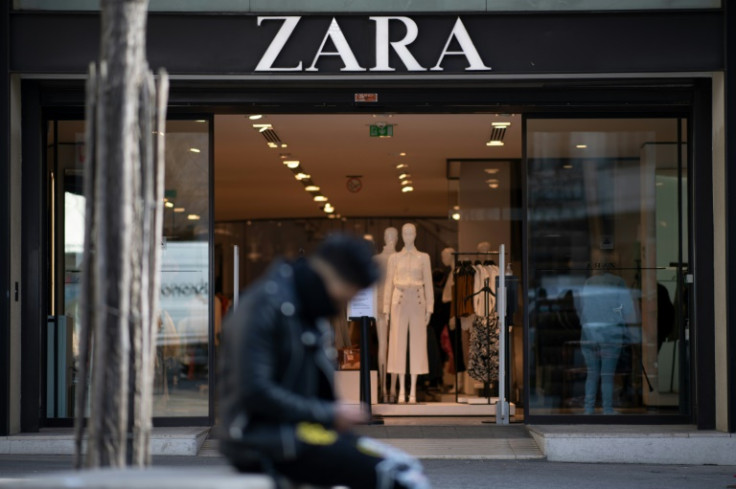Zara Pulls Ad Campaign After Images Likened To Gaza Crisis
Zara has been hit with boycott and cancel culture threats after its ad campaign, which depicted mannequins wrapped in white plastic, was linked to Gaza.

Zara, a fashion giant that generates an average revenue of €19.5 billion each year, sparked outrage after it launched its new ad campaign.
The campaign, which was dubbed 'The Jacket' by Zara, depicted images that featured model Kristen McMenamy who posed with mannequins wrapped in white plastic.
The advertisement was shot by Photographer Tim Walker who captured McMenamy holding the mannequins in front of a deconstructed workspace that was full of empty wooden boxes and white rubble.
Zara was slammed after consumers recognised visual parallels between the ad campaign and photographs of the current catastrophic situation in Gaza.
Since Hamas's on-the-ground massacre and capture of Israeli civilians on October 7, the Israeli Defence Force (IDF) has continued its relentless bombardment of Gaza.
In just nine weeks, more than 18,600 Palestinians in the Gaza Strip have reportedly been killed by Israel's air strikes.
The image of McMenamy holding a limbless mannequin wrapped in white plastic was compared to an image of a Palestinian mother hugging what appears to be her dead child who had been wrapped in a body bag made from white cloth.
A social media user soon cropped the images side by side, and the post circled on social media.
The fast-fashion brand was criticised by thousands of its customers on social media, with one Instagram user writing: "Cancelled. Period."
In response to the campaign, another social media took to X, formerly Twitter, to criticise the fashion giant's marketing team.
The user posted an image of the grieving mother hugging her child on X, with a caption that read: "I don't believe anyone in branding or marketing saw the wrapped statue in that Zara photo shoot and didn't think of this."
"But even if it was a mistake - you're not aware enough of current affairs to be working in marketing you approved it through ignorance," she continued.
Fashion brand #Zara said on Tuesday it regretted the "misunderstanding" over an ad campaign featuring statues wrapped in white that triggered calls for a boycott by some pro-#Palestinian activists, and it had removed the images. https://t.co/SI03Bx5717 #BoycottZara… pic.twitter.com/6lSa9dvJpd
— Shanghai Daily (@shanghaidaily) December 14, 2023
Zara responded to the backlash with an apology post, noting that the brand regrets launching its latest ad campaign.
"The campaign, that was conceived in July and photographed in September, presents a series of images of unfinished sculptures in a sculptor's studio and was created with the sole purpose of showcasing craft made garments in an artistic context," the statement read.
Zara said that it had removed the last images of its campaign shoot and continued: "Unfortunately, some customers felt offended by these images, which have now been removed, and saw in them something far from what was intended when they were created."
"Zara regrets that misunderstanding and we reaffirm our deep respect towards everyone," the apology concluded.
The controversial ad campaign has been criticised on a global scale, with former consumers of Zara have since called for a boycott of the fast-fashion brand.
In Canada, pro-Palestinian activists defaced the shop windows of a Zara store, in addition to demonstrators organising sit-in protests that called for a boycott of the Spanish brand.
Video footage posted on social media showed the group of protestors waving the Palestinian flag outside of a Zara store in Canada. The demonstrators are heard chanting 'Boycott Zara' and 'Free Palestine'.
Outside another Zara store in Montreal, Canada, a group of pro-Palestine demonstrators vandalised the shopfront windows.
The activists graffitied the words 'Gaza' and 'Free Palestine' over the original Zara shopfront branding.
With reference to the controversial ad campaign, one of the activists outside a Zara store in Canada, said: "It was the most disgusting collection I've ever seen... They are making fun of us and they are making fun of children who have been killed and our houses which have been destroyed."
© Copyright IBTimes 2025. All rights reserved.






















